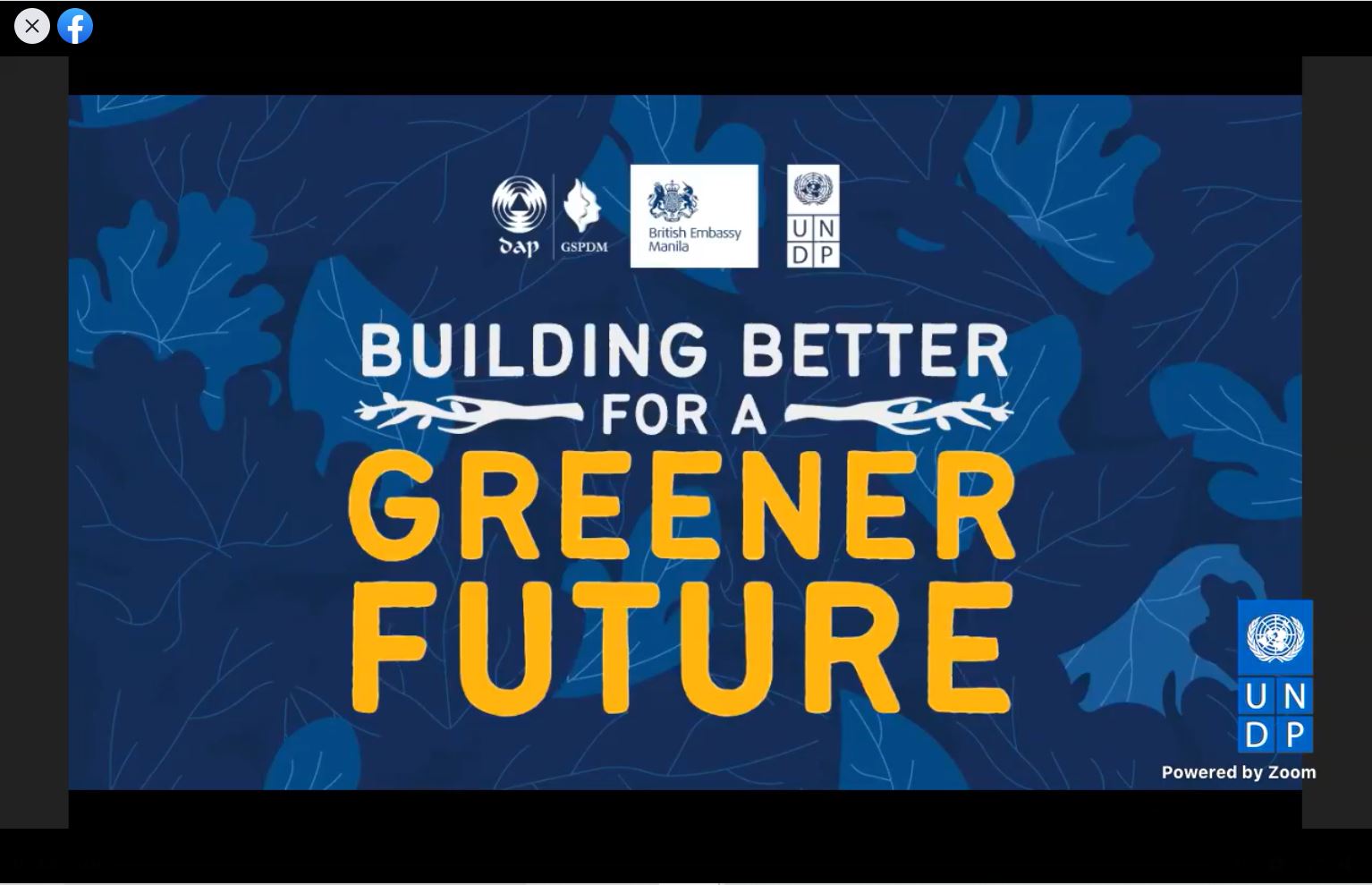
March 26, 2021 Friday

Photo from the UNDP Philippines’ Facebook Live coverage.
MANILA, 27 March 2021 — The Climate Change Commission (CCC) and the Department of Finance (DOF) underscored the importance of accessing climate finance and mobilizing green investments to help increase the country's resilience to shocks from pandemics and the climate crisis.
In the "Building Better for a Greener Future" webinar held on March 25, CCC Secretary Emmanuel De Guzman stated that while the COVID-19 pandemic has brought about unprecedented loss in lives and livelihoods and to the global economy, the climate crisis is by far more disastrous, deadlier, more widespread, and lingering.
“Its loss and damage are projected to reach USD 600 trillion by the end of the century if the global community misses the 1.5 degrees Celsius Paris goal. Climate change will continue to worsen poverty, vulnerabilities, and risk of our communities to natural hazards as well as to the pandemic. Yet, following a brief decline caused by the lockdowns and economic slowdown, emissions are coming back to pre-pandemic levels,” De Guzman stressed.
“To change our perilous path, we need nothing short of a great reset that reforms the ways we’ve lived and regarded our environment. We need to usher in a new kind of development, the kind that ensures socioeconomic equity, ecosystem protection, and cultural resilience. We are in need of a holistic and integrated approach to mobilizing and complementing finance and resources in the public and private sectors,” De Guzman added.
De Guzman said that by building on the investments made in the COVID-19 recovery, the implementation of the country’s Nationally Determined Contribution (NDC) can help generate and sustain development gains across Philippine society and our economic sectors.
Department of Finance Assistant Secretary Paola Alvarez meanwhile explained that the green finance structure in the Philippines is “made to focus on financial instruments that are designed to help government manage the cost of disasters due to our innate vulnerability, while increasing revenue generation given our context of being an emerging economy.”
Alvarez also discussed the government’s efforts on incentivizing sustainability and innovation through the Corporate Recovery and Tax Incentives for Enterprises (CREATE) Law, which aims to provide tax discounts to activities aligned with the Philippine development agenda. She also mentioned of existing climate finance tracking initiatives, such as the Climate Change Expenditure Tagging (CCET) and the Public Investment Program Online (PIPOL) System.
“Climate budgeting is an important additional foundation of the climate change response of the Philippines, and it is in line with the commitments of the Department of Finance in international platforms, such as the Coalition of Finance Ministers. The Philippines champions Helsinki Principle No. 4, which takes into account climate change and macroeconomic planning, fiscal spending, procurement, and other policies. This is where the Nationally Determined Contribution comes into play. We can actually look into what different policies we can put in place to help implement our NDC. And that’s through mainstreaming of climate policies,” Alvarez emphasized.
This webinar is part of the Inclusive Innovation webinar series, which is a joint effort by the United Nations Development Programme (UNDP), UNDP Accelerator Labs, and the Development Academy of the Philippines (DAP), in order to identify policy strategies, incentives, and regulations on green investments and innovative finance that will accelerate the transition towards a green and inclusive recovery.
Watch the replay of the webinar through the Facebook Page of the UNDP Philippines at https://web.facebook.com/undp.ph/videos/143294921034606.